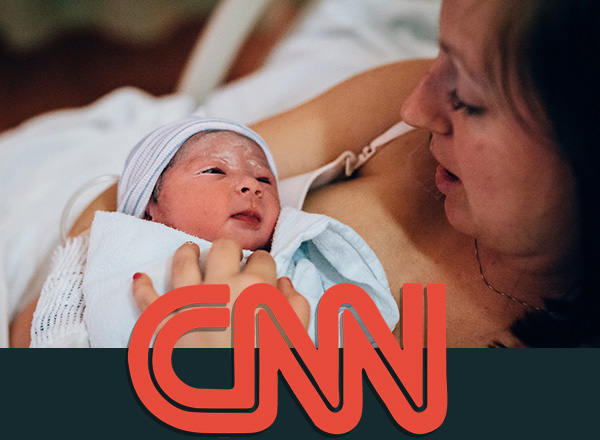Age Raises Infertility Risk in Men, too

The risks associated with men's fertility may be similar to women. That’s why becoming a dad means watching your biological clock!
When you're playing on the playground, sometimes it can be difficult to tell who is watching kids -- dad or granddad?
Experts have been busy studying the declining fertility in women and overlooked an equally important trend: infertility among men has risen too!
There has not been an adequate amount of research into male reproductive biology, and the decades-old dogma that early sperm production is not damaged by age. We do know that older fathers are more likely than younger ones to have children with autism and schizophrenia. But little is known about other health outcomes for offspring of older dads, or whether paternal age influences male infertility directly, rather than through genetic glitches or disorders in offspring.
In the last few decades, the age of fatherhood has changed a lot. Men will have children at an older age. However, there is a problem that comes with this: fertility declines after 35 years old and continues to decline every year after 40.
The women set the baby-making agenda. When more and more women wait to have children, their husbands are forced to postpone parenthood as well. In the 1970s, about 15% of the fathers were over 35 years old. That number is now 26%. Even among men in their 50s, there has been a great increase in fatherhood.
While it has become more socially acceptable to put off fatherhood, experts caution that the decision is not without risks. "Men have grossly overlooked the potential role of their age in infertility."
Effects of Age on Male Fertility
Women are very aware of their age when it comes to infertility, but men often neglect the issue. "Men don't seem to take into account that they're also getting older," says Dr. Paraschos, a fertility expert at Embio IVF Center.
Until recently, popular belief held that men could father children as easily at 78 as they could at 18. But a mounting body of evidence is showing otherwise.
In one study of couples undergoing high-tech infertility treatments, researchers concluded that while women's chances for success with fertility treatments decrease as they age, men’s decreased at an even faster rate. The odds for success fell by 11% annually in males; their chance of obtaining a successful live birth declined even more rapidly. This finding was reported in the 2004 issue of the American Journal of Gynecology.
As men get older, their sperm will change. The volume will be smaller, the motility (how well it moves) will decrease, and the structure will change. All these have a negative impact on male fertility.
Rise of Other Reproductive Risks
The original idea that men's contribution to pregnancy stopped at fertilization needs to be completely changed. A broader and more accurate view would acknowledge the impact of aging sperm on birth outcomes. We know that once women reach their mid-30s, their risk for having a baby with a genetic abnormality increases sharply. Now we know that the age of fathers can also contribute to this risk.
This was shown in the most revealing study on this topic so far, where more than 3,400 cases of Down syndrome were evaluated. The father's age had a big effect when both parents were over 35. The effect was most pronounced for mothers over 40 years old. We found that Down syndrome is related to sperm about 50% of the time.
Older men also have a higher risk of giving birth to children who develop schizophrenia, which can be a devastating mental disorder. In one study, researchers discovered that men between 45 and 49 are twice as likely to have children with schizophrenia than younger men are. And men over 50 were three times more likely than those 25 and younger to have children with schizophrenia. In total, this data was derived from a study consisting of approximately 85,000 people.
Poor lifestyle habits can speed up how quickly a man's fertility declines
Men can slow the decline of their fertility by improving their lifestyles. If a man wants to maintain his maximum fertility, then he should not take recreational drugs, not smoke, and maintain a healthy weight.
Male Age and IVF Success
One study looked at 2,500 IVF cycles used with ICSI. ICSI stands for intracytoplasmic sperm injection. ICSI is when a man's sperm cell is injected directly into an egg.
Male age lowered the number of high-quality embryos, but it did not harm the pregnancy rate or increase the risk of premature birth or pregnancy loss.
Another study looked at 4,800 IVF cycles that also used donor eggs and ICSI during the cycle. In this study, all the donor eggs came from women who were 36 years old or younger.
Researchers found that the number of sperm cells a man has, how well they move, and their concentration all decrease with age. Ideally, this does not affect pregnancy rates, but those who are trying for a natural conception should know they face much lower odds of success as the father’s age increases.
What To Do Now
Deciding when to have a child is one of the most important things couples will ever consider. When you are starting your family, consider the effect that both parents’ ages can have on fertility and birth outcomes.
Certain changes to your lifestyle can promote your sperm health in general. These include reducing stress, quitting, or cutting back on cigarettes and alcohol, exercising more, and getting enough sleep.
If you are having problems with infertility or want to maximize your chances for a healthy pregnancy, discuss it with your doctor.

